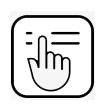
Substance abuse therapy allows for a new perspective, which helps the addicted identify habits or thoughts that make them addicted.
Bloodshot Eyes
Changes in appetite or sleep patterns
Deterioration of physical appearance
Sudden weight loss or weight gain
Tremors, slurred speech, or impaired coordination

Marijuana, hashish, and other cannabis-containing substances
People use cannabis by smoking, eating, or inhaling a vaporized form of the drug. Cannabis usually precedes or is used along with other substances, such as alcohol or illegal drugs, and is often the first drug tried.

Alcohol
Heavy drinking can seriously damage the liver, stomach, heart, brain, and nervous system. It also increases the risk of cancer of the mouth, throat, larynx (voice box), and esophagus. Women are at higher risk of developing breast cancer and osteoporosis. In addition, people who drink heavily may not eat adequately, often resulting in vitamin and mineral deficiencies.

Opioids
One of the most often misused drugs, legally and illegally, is opioids. Opioids are a group of tranquilizers and analgesics. Both its illegal forms, such as heroin, and its legal ones, like opiate medications, are misused. Signs and symptoms of narcotic use and dependence can include:

Inhalants
Signs and symptoms of inhalant use vary, depending on the substance. Some commonly inhaled substances include glue, paint thinners, correction fluid, felt tip marker fluid, gasoline, cleaning fluids, and household aerosol products. Due to the toxic nature of these substances, users may develop brain damage or sudden death. Signs and symptoms of use can include:

Hallucinogens
Hallucinogens can produce different signs and symptoms, depending on the drug. The most common hallucinogens are lysergic acid diethylamide (LSD) and phencyclidine (PCP).
LSD use may cause:

Meth, cocaine, and other stimulants
Stimulants include amphetamines, meth (methamphetamine), cocaine, methylphenidate (Ritalin, Concerta, others), and amphetamine-dextroamphetamine (Adderall XR, Mydayis). They're often used and misused in search of a "high" to boost energy, improve performance at work or school, lose weight, or control appetite.
Signs and symptoms of recent use can include:
Help from our health care providers and an organized treatment program can help you overcome your drug addiction.
We offer a goal-oriented experience that supports your mental health journey based on specific needs.

Find Your Therapist

Check Your Insurance

Schedule Your Session

Our specialists work to identify and comprehend how these stressors are impacting your life & develop strategies to manage the symptoms.
Move ahead from the comfort of your home with online counseling. Our professional therapists provide comprehensive support and assistance to restore your confidence.
Start your substance abuse treatment now!
Our Counselors | Insurance | Services Offered | Privacy
Medication can indeed be used alongside counseling for substance abuse treatment. In fact, a combination of medication and counseling is often the most effective approach to overcoming addiction. Medications can help manage withdrawal symptoms, reduce cravings, and prevent relapse. Counseling can assist individuals in developing coping skills, identifying triggers, and addressing underlying issues that contribute to substance abuse.
It's crucial to work with a qualified mental health professional to determine the appropriate medication and dosage, as well as the most effective type of counseling for the individual's unique needs.
We use a HIPAA-compliant video counseling service integrated into our Electronic Health Records System to provide a smooth process for our clients to engage in online therapy sessions. Booking a session with us is easy. Simply call our office or request a specific session time from our website, and a team member can book you with the best possible fit as a counselor or confirm your online session details. We'll review insurance information and a few simple policies and email you a confirmation of your session date and time, whether in-person or virtual therapy.
Substance abuse counseling is a form of therapy designed to aid individuals in overcoming their addiction to drugs or alcohol. The counseling process typically involves a blend of individual and group therapy sessions in which a qualified mental health professional collaborates with the person to recognize the root causes of their substance abuse, develop coping mechanisms to deal with triggers and cravings, and create a recovery plan.
Substance abuse counseling may also involve family members or close friends in the therapeutic process to offer encouragement and address any interpersonal issues that may have contributed to the individual's addiction.
A substance abuse counselor is a mental health professional who is trained to provide support and treatment to individuals struggling with addiction to drugs or alcohol. a drug and alcohol counselor work with clients in individual or group therapy sessions to help them identify the root causes of their substance abuse and develop effective coping strategies to manage triggers and cravings. Substance abuse counselors may also involve family members or loved ones in the therapy process, providing education and support to help individuals achieve long-term recovery and relapse prevention.
Find a Substance Abuse counselor who may work in various settings, including private practice, rehabilitation centers, hospitals, and community organizations.
CBT and drug therapy have their own advantages and disadvantages in treating mental health conditions. While drug therapy can be effective in managing symptoms in the short-term, it may not equip individuals with long-lasting coping skills to manage their symptoms in the future. On the other hand, CBT provides individuals with practical coping strategies and skills that they can use even after therapy has ended. CBT also allows individuals to better understand their thoughts, feelings, and behaviors, which can lead to more sustainable changes in their mental health. Ultimately, the choice between CBT and drug therapy will depend on the individual's specific needs and circumstances, and it's important to work with a qualified mental health professional to determine the most appropriate treatment approach.
CBT, MI, CM, family, group, and holistic therapies are all different types of counseling that can be used to address substance abuse. CBT is a therapy that helps individuals change negative thoughts and behaviors, while MI is aimed at helping individuals identify and resolve any ambivalence they may have about stopping substance use. CM utilizes rewards or incentives to encourage positive behaviors, family therapy works with the individual and their family members, group therapy involves meeting with a group of individuals, and holistic therapies address the whole person.
It's crucial to work with a qualified mental health professional to identify the most suitable type of counseling based on individual needs and circumstances.
The length of counseling for substance abuse is individualized and depends on factors such as the person's progress and treatment goals. While some individuals may only require a few sessions, others may need ongoing or long-term treatment. It is essential to work with a qualified mental health professional to determine the appropriate duration and frequency of counseling for the individual.
Counseling for substance abuse has been proven effective in helping individuals overcome addiction and maintain long-term recovery. Studies have shown that different types of counseling, such as cognitive-behavioral therapy (CBT), motivational interviewing (MI), and contingency management (CM), can be effective in treating substance abuse. The success of counseling depends on various factors, such as the individual's commitment to the process, the severity of their addiction, and the quality of the counseling they receive.
It's essential for individuals to collaborate with qualified mental health professionals to identify the most suitable type of counseling and develop a personalized treatment plan for their substance abuse.
At Lifebulb, our biggest difference lies in our therapists. Many practices, large and small, often put growing businesses before growing people. It may sound simple, but at Lifebulb, we treat our therapists like valuable people that provide a valuable service. What does that mean for our clients? While we believe therapists and counselors, regardless of where they work, do their best for their clients, we've found that therapists and counselors who genuinely enjoy where they work are able to provide higher-quality services and ideal substance abuse counseling treatment to those they help. To that end, our primary goal at Lifebulb is to provide our therapists and counselors with the best possible environment in which to operate.
In doing so, we believe Lifebulb clients are best positioned to accomplish their therapy and counseling goals through in-person counseling or virtual therapy.
Lifebulb has several locations for in-person substance abuse counseling and is adding more regularly. We also provide telehealth or online substance abuse counseling session services for those who may live distant from our offices. You can reach out to Lifebulb using our 24x7 active helpline, or you can search for us online; simply use ‘drug counseling near me, ‘substance abuse counseling near me,’ ‘drug and alcohol counseling near me,’ ‘Find a addiction counselor near me,’ ‘addiction counseling near me’ or ‘Find a Substance Abuse Counselor.’
Start your journey to better mental health. Read to find out more about substance abuse counseling and treatment processes.